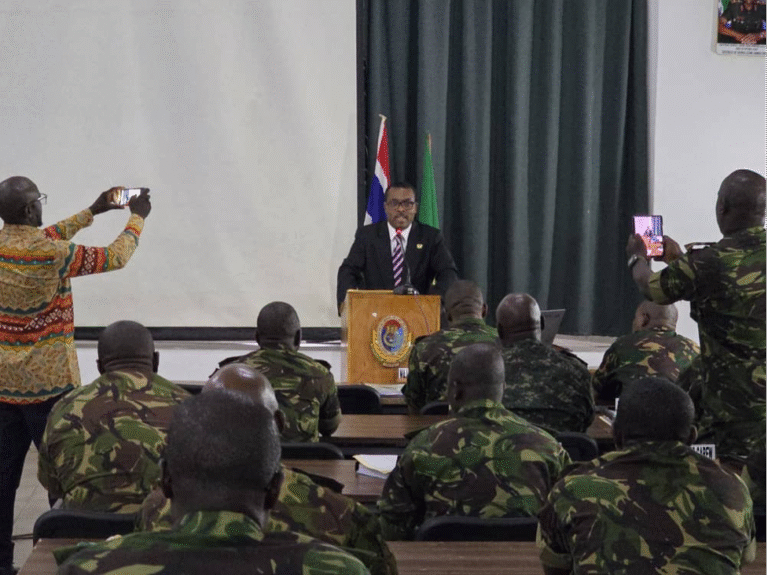At the C40, Global Covenant of Mayors for Climate & Energy (GCoM) and Bloomberg Philanthropies-supported Communications Directors Convening in Phoenix, Arizona, I had the opportunity to present Freetown’s Tree Planting Initiative, an innovative climate solution that also tackles youth unemployment, a key priority under Mayor Yvonne Aki-Sawyerr’s Transform Freetown – Transforming Lives agenda.
Like many cities in the Global South, Freetown faces the compounded challenges of rapid population growth, high youth unemployment, and infrastructure deficits. These issues contribute to the rise of informal settlements and limited access to essential services.
I emphasized that climate action is not just a necessity for our planet, it’s also a vehicle for economic opportunity. By connecting urgent local priorities with climate strategies, Freetown is demonstrating how resilience and opportunity can grow hand-in-hand, grounded in innovation, community ownership, and sustainability.
FreetownTheTreeTown is a practical example. This climate adaptation initiative, supported by the World Bank and Bloomberg Philanthropies, aims to plant 5 million trees by 2030 and has already planted 1.2 million. More than just a greening effort, it has created over 2,500 jobs for young people, who are involved in the planting, tracking, and monitoring of the trees. This community-driven model shows that climate solutions can deliver both environmental impact and inclusive economic benefits.
Beyond Freetown, I highlighted that within the South-South framework particularly across the Mano River Union (MRU) basin, climate challenges are strikingly similar, and so are the solutions. In Kanifing City, The Gambia, for instance, women and young people are at the forefront of driving waste management efforts, aligning climate action with job creation. Similarly, in Monrovia, Liberia, tree planting is emerging as a key strategy to combat the climate crisis, mirroring Freetown’s own approach. These shared experiences reinforce the power of regional collaboration and locally led solutions.
With participants from 27 cities across five regions, the convening also served as a platform for strengthening audience engagement strategies, enhancing global messaging, and building deeper collaboration on climate communications. A key focus was advancing mayors’ climate agendas and developing a forward-looking communications roadmap as we prepare for COP30, World Mayors Summit, U20 and other pivotal climate milestones in 2025 and beyond.







